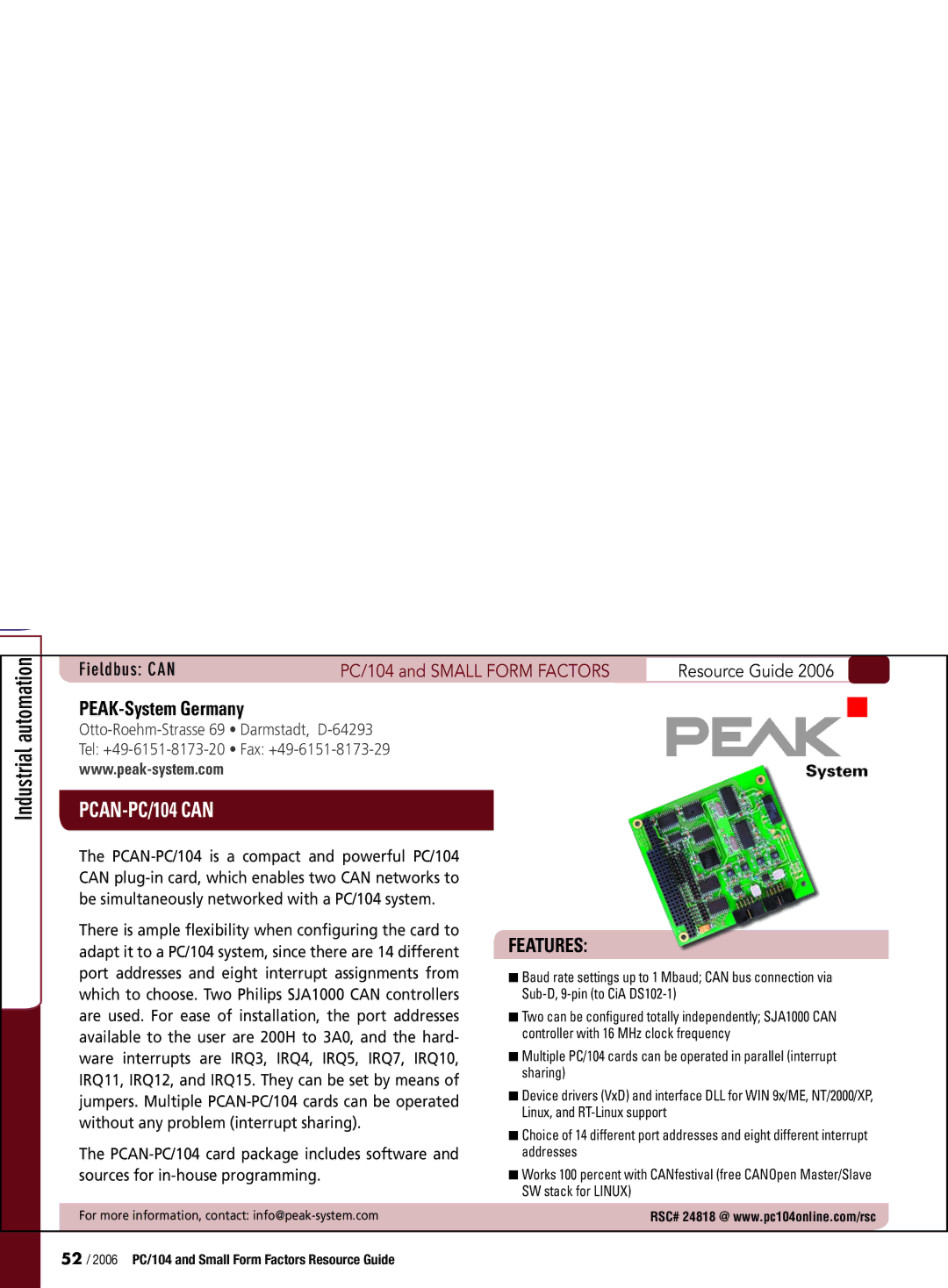PCAN-PC/104 specifications
The Peak Pilates PCAN-PC/104 is a powerful and versatile embedded computing platform designed for industrial and commercial applications. Leveraging the compact PC/104 standard, this solution integrates cutting-edge technologies to deliver reliable performance in rugged environments.One of the standout features of the PCAN-PC/104 is its modularity. The PC/104 architecture allows for stacking multiple boards, enabling users to customize their setup according to specific requirements. This modularity provides flexibility, making it easier to upgrade or adapt the system as technology evolves or application needs change.
The PCAN-PC/104 is built around a robust processor architecture that can include options from Intel, AMD, or ARM, providing a range of performance levels suitable for various applications. The board supports a wide array of operating systems, including Windows, Linux, and real-time operating systems like QNX, ensuring compatibility with a variety of software environments.
In terms of connectivity, the PCAN-PC/104 excels with an extensive range of I/O options. It typically features multiple serial ports, USB interfaces, Ethernet connectivity, and GPIO pins, allowing seamless communication with external devices, sensors, and networks.
The integration of advanced graphics capabilities in the PCCAN-PC/104 enables graphics-intensive applications. With support for high-resolution displays, it is ideal for applications requiring sophisticated user interfaces or visualization of complex data.
Another key aspect of the PCAN-PC/104 is its reliability in extreme conditions. Designed for industrial use, the board demonstrates resilience against temperature fluctuations, vibrations, and electrical noise, making it suitable for deployment in manufacturing, transportation, and outdoor environments.
The scalability is a significant characteristic of the PCAN-PC/104. Users can start with a basic configuration and expand their system as project requirements grow. This adaptability is crucial in fields where technology progresses rapidly, ensuring that users won't be left behind.
Furthermore, the PCAN-PC/104 incorporates power-efficient technologies, optimizing energy consumption without sacrificing performance. With an emphasis on low power usage, it is well-suited for battery-operated applications or systems where energy efficiency is paramount.
In conclusion, the Peak Pilates PCAN-PC/104 is a highly capable embedded computing platform that combines modular flexibility, powerful processing, extensive connectivity, and industrial durability. Its adaptability and advanced features position it as an excellent choice for a wide variety of applications, ensuring longevity and resilience in ever-evolving technological landscapes.

